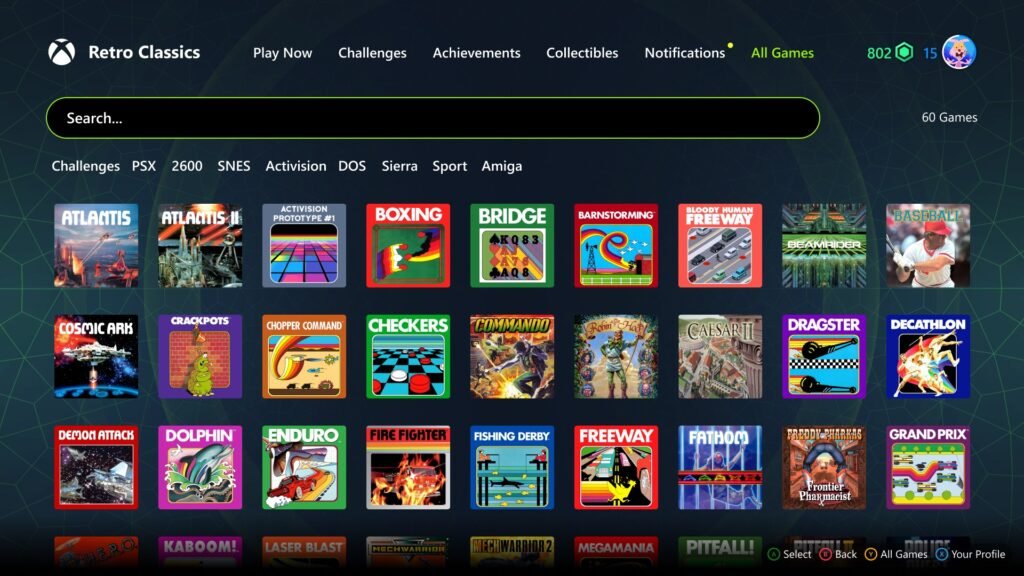
Xbox Game Pass Expands with Retro Classics and New PC Gaming Features
Microsoft revealed a meaningful expansion to its Xbox Game Pass subscription service by adding a curriculum of retro video game classics, along with multiple other enhancements designed to improve the PC gaming experience. This public relations development should be viewed as an implementation of the company’s larger strategy, which is to evolve Xbox Game Pass into a cross-platform ecosystem catering to both legacy gamers and contemporary gamers. Considering the potential ramifications for the video gaming industry concerning digital preservation, competition, and consumer behaviors, this analysis provides an objective and thorough assessment of the expansion, including the historical context, a factual review, and stakeholder perspectives, as well as broader trends.
History
Since its launch in 2017, Xbox Game Pass is a subscription service allowing you access to a catalog of games on a rotating basis for a monthly fee. Game Pass has been instrumental in Microsoft’s effort to build a video game service similar to Netflix, debuting first-party titles the day they come out, and enabling cross-platform compatibility (Xbox consoles main and PC) has legitimately changed the game of how Xbox segments its catalog of games.
Now, adding retro games into the fold here is a bit of a shift. Since the Xbox One, Xbox consoles have had backward compatability as their legacy titles prioritization in “recent,” but assembling a dedicated, curated retro library with titles from original Xbox’s library, Xbox 360, and retro games from something like MS-DOS, as well as early PC titles, feels like a collection of gaming history. And around the same time, new features for PC gaming would include more theoretically positive mod support, keyboard mapping improvements, and further options for cloud syncs that are identifying and addressing issues presented in traditional PC gaming conventions to address longstanding issues faced by the PC gaming community, worthy of being stronger Game Pass experiences.
According to the official announcement from Microsoft, the new retro titles will include different rotating libraries that have been vetted with agreement from the developers and publishers that own the original licensing. Microsoft also emphasized the use of emulation technology and DRM technology to guarantee performance and legitimacy.
The new PC gaming features are in already in beta testing with select users in several tech publications. In the reviews and testing, the new user experience improvements are said to assist usability and accessibility with users who want, or need, more customized controls and sync across devices.
Although the announcement may largely consist of good news, there are some important things that require attention. First, the size and permanence of the retro library is uncertain. Microsoft hasn’t given specifics about how long the games will be available or how they will deal with licensing issues, which could demonstrate disregard for preservation efforts in a sustainable way.
Additionally, expansion could create barriers to competition. Detractors have noted that the growing dominance of Game Pass as a platform consolidating a growing number of major studios like Bethesda and now Activision Blizzard could overly consolidate the market when consumers have less choice and further choke out smaller developers who may have trouble either competing in Game Pass or getting noticed outside of it.
Implication
Including access to retro games can serve to position Xbox Game Pass as a digital archive, and may be reshape the narrative around the history of games, what it means to embrace history, and how we access it. This can offer more to younger players through historical or educational avenues about the evolution of design in video games. Older players can indulge their nostalgia and easily revisit their bygone days as gaming consumers.
The other professionals observing this from an industry standpoint may see that this could force competitors such as Sony’s PlayStation Plus and Nintendo Switch Online to add more retro options, or onboarding of more retro games from their extensive catalogs, and add PC compatibility. This could lead to a compelling, larger trend away from exclusive console services for preservation, and a shift toward being a platform-agnostic service moving forward.
The downside to all of this is that it still raises very important issues regarding ownership of games, as they are not purchased, rented, and referred to more like renting time on content that may expire if a license runs out or even if Microsoft decided to stop paying for the license to keep the game. In this model, consumers could still lose access to historic titles, so this remains an issue for video game preservation overall.
Relative to Sony and Nintendo, Microsoft’s retro strategy is certainly more ambitious. Sony’s PS Plus Classics and Nintendo’s Switch Online retro libraries are limited in both catalog size and platform access. Neither company has the same level of PC integration. Microsoft’s strategy seems focused on bringing console and PC gamers into one ecosystem as cloud gaming and mobile access continue to grow.
Microsoft’s growth of the Xbox Game Pass service with retro classics titles and revitalized PC gaming features represents a multi-dimensional development in the digital gaming landscape. While the expansion supports better accessibility, experience, and historic preservation, it also creates challenges involving content permanence, monopoly, and digital ownership associated with Microsoft’s evolution of gaming. As Microsoft continues to shape the future of gaming distribution, the ramifications will depend on how thoroughly and transparently Microsoft embraces licensing, competition, and so-called community and engagement factions.
Keep reading khiladicafe